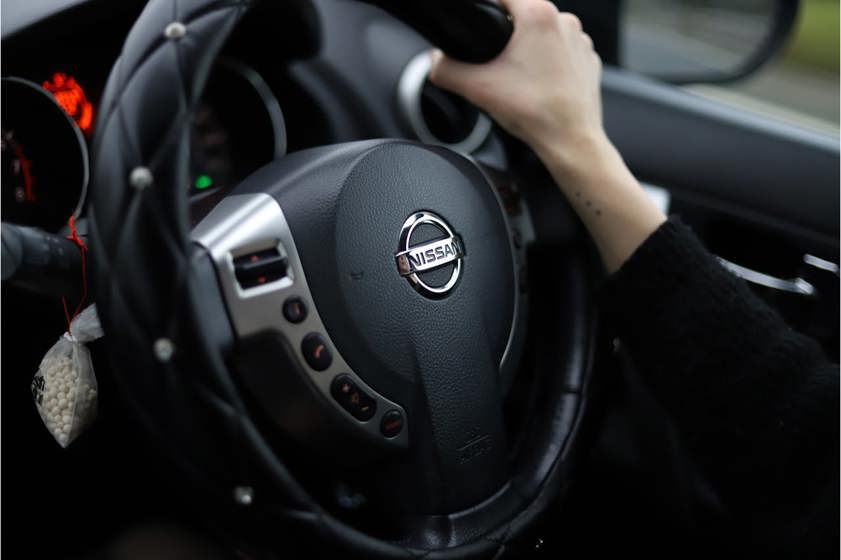
Japan is a country that does a lot of things well, and perhaps at the top of the pile is their automotive industry. Steeped in history and with a worldwide reputation for producing very good vehicles, you really can’t go wrong with a Japanese car.
Brands such as Toyota and Nissan have spearheaded the industry for nearly a decade, producing iconic vehicle after iconic vehicles.
But why are Japanese cars so good, and what are they doing to prepare for the future?
In this blog, we’ll take a deep dive into what makes Japanese car brands so beloved, explore the options for drivers, and how they’re transitioning for the future.
We discuss:
With all this talk about reliability, you might wonder: What is the best Japanese car brand?
The truth is, it depends completely on what you're looking for. Like any brand, they all have their own strengths and weaknesses and appeal to different customers. Let’s explore some of the big players:
- Toyota - Toyota is perhaps the biggest and most well-known Japanese car brands. They’re known for their excellent build quality and outstanding fuel efficiency, and for many, are often seen as the best option. They’re also a leader in hybrid technology, which is showcased by their incredibly popular Corolla and Prius models.
- Honda - Honda is a great choice for those looking to balance performance and practicality. Their cars are known for their excellent engines and sleek design, resulting in a whole load of cars that are fun to drive and still reliable.
- Mazda - If you’re looking for a car that offers sporty driving dynamics at an affordable price tag, Mazda might be the best bet. Known for their lightweight designs and excellent drive dynamics, Mazda cars stand out for their fun and great value. They’re also at the heart of innovation, showcased with their signature Skyactiv engines.
- Nissan - For a solid all-rounder, you cannot go wrong with Nissan. One of the most popular manufacturers across the globe, Nissan continues to churn out vehicles that are affordable, packed with tech, and incredibly reliable. Cars such as the Qashqai and Juke combine a fun drive with a practical design, while the Leaf continues to be one of the most popular EVs on the market.
- Subaru - Subaru might not be the first Japanese manufacturer to come to mind, but once you drive one, you won’t want to go back. Known for producing rugged and practical cars, Subaru’s are fantastic for drivers who value durability and safety.
- Suzuki - Known for their practical, budget-friendly cars, Suzuki proves that the best things come in small packages. Focusing on creating compact cars that are built to last, their models, such as the Swift and Jimny, are ready for just about anything.

When you think of a Japanese car, the first thing that comes to mind is reliability. It’s no surprise, really. Japanese manufacturers such as Toyota, Honda, Nissan, and Suzuki built their reputation on delivery cars that last, and it still shines through today.
Cast your mind back to that Top Gear episode where they try to destroy a Toyota Hilux. They set it on fire, drowned it, and then blew up a building on it, and it was still going strong! I wouldn’t be surprised if it could survive a nuclear bomb!
Much of this reputation for reliability stems from the meticulous attention to detail that Japanese car makers apply at every stage of production. There are no half-measures, and they ensure continuous improvement and quality control.
You could also say it’s a cultural thing. Japan is a country that places huge emphasis on respect and hospitality for others. It just wouldn’t be feasible for a manufacturer to push out a car that isn’t reliable.
It’s not just about reliability and longevity, though. Japanese manufacturers are also known for designing vehicles that offer great fuel efficiency and
Like the rest of the automotive industry, the future for Japanese brands is looking increasingly electric. Unlike here in Europe, where combustion engines seem to be ingrained into our culture, Japanese brands have been open to change relatively early, which has stood them in good stead.
A forward-thinking mindset has positioned some of the brands to lead the charge in the transition to EVs. Toyota’s Prius has arguably become the face of hybrid technology across the globe, while others, such as Nissan, Honda, and Mazda, are fully embracing electric mobility.
However, this optimistic book isn’t without its challenges. As Japanese brands push forward with electrification, they face increasing pressure from Chinese automakers. Brands like BYD are rapidly expanding their EV offerings, with brilliant cars available at an affordable price.
While this is no domestic threat for Japan, it’s their exports that could take a hit. Japanese car brands have always been the ones customers looked towards for affordability, reliability, and good technology. But is this about to change?
I’d say so. Back in 2023, the Chinese car market surpassed Japan with exports of more than four million vehicles. Moving forward to 2024, this increased to nearly six million vehicles. An obvious threat to the Japanese market.
This was apparent in the merger talks between Honda, Nissan, and Mitsubishi, which aimed to fight back against Chinese competition. Historic rivals wanted to put the past in the past and work together. Innovative, or desperation?
Although the talks may have broken down (as of writing this), it shows the pressure Japanese brands are under. It will be interesting to see how 2025 plays out.

This is an age-old debate that often comes down to personal preference. However, let’s break it down and be impartial.
German cars are known for their luxury and performance, with brands such as BMW, Audi, and Mercedes-Benz seen as the epitome of the industry. A German car usually offers a superb driving experience with a powerful engine and state-of-the-art interior.
On the other hand, Japanese cars excel in areas like reliability, affordability, and longevity. Brands such as Toyota, Honda, and Nissan offer vehicles that are built to last and cost little to repair. While they might not have the luxury and performance of their German counterparts, they offer unique benefits.
So, which is better?
Performance and power = German car.
Efficiency and reliability = Japanese car.
Japanese car brands have built their reputation on reliability and innovation.
Whether you’re looking for a hybrid, an EV, or a reliable family motor, you can't go wrong with a Japanese manufacturer.
So, if you’re considering a new car, consider the great options available from brands like Toyota, Honda, and Nissan.
Looking for more deep dives and explainers? Nationwide Vehicle Contracts has produced a range of comprehensive leasing guides, such as our Tips on Keeping Your Vehicle Secure.
We are also one of the UK’s largest car leasing brokers, offering a range of affordable leasing deals to suit your every need. For more information, call one of our experts on 0345 811 9595.
Originally posted: 21st February 2025

